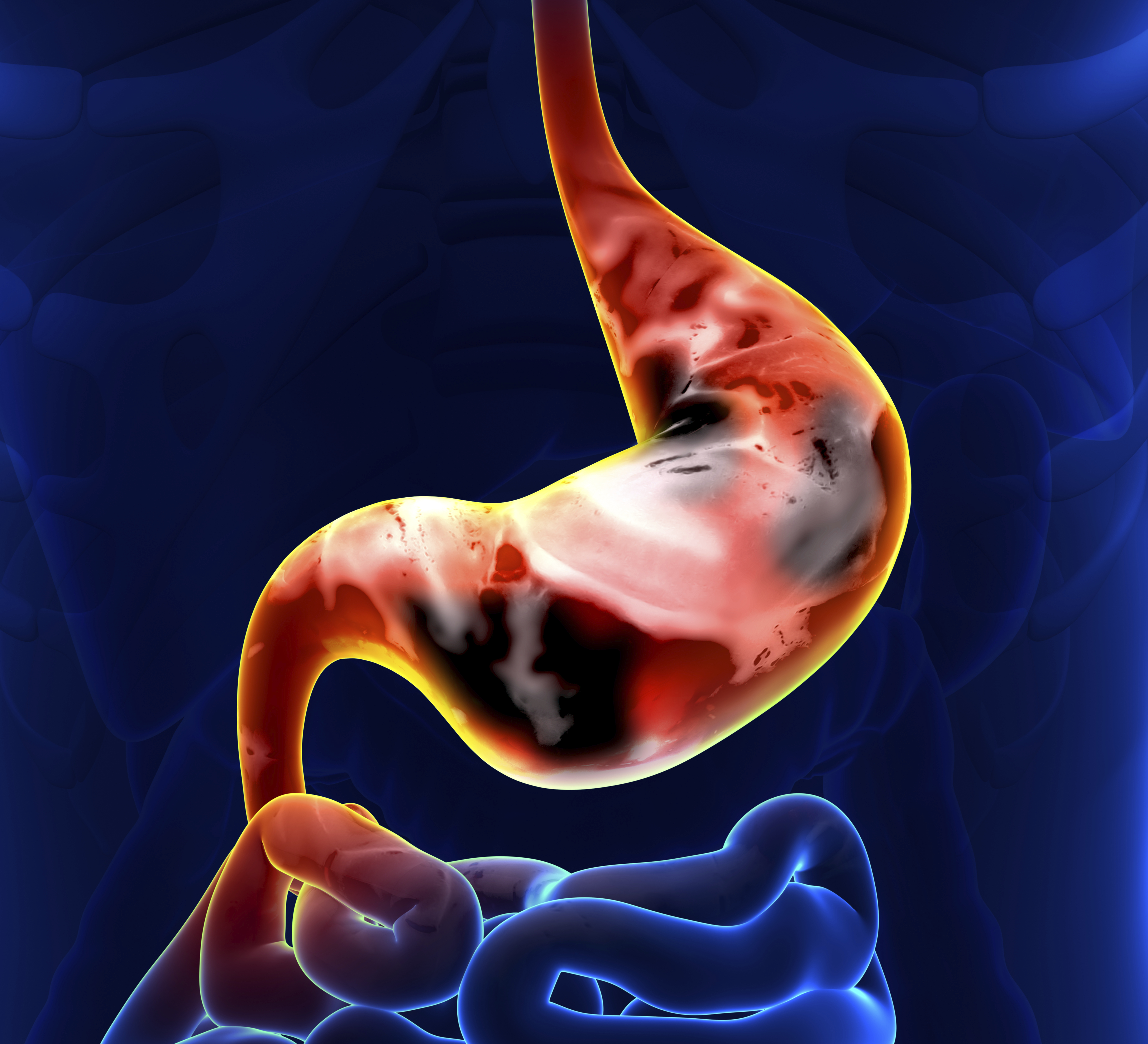Stomach Cancer
Stomach cancer, also know as gastric cancer, can affect any part of the stomach. However, it usually involves the stomach lining. Stomach cancer is treatable if detected in its early stages. If you’ve been suffering from unexplained abdominal pain, unexplained weight loss, or black stools, do not hesitate to visit the Gastroenterology Institute of Southern California for a consultation.
Signs, Symptoms and Causes of Stomach Cancer
While patients in the early stages of stomach cancer may not demonstrate any symptoms, you should contact your expert gastroenterologist if you experience any of the following:
- Appetite loss
- Mild nausea
- Indigestion
- Heartburn

Though these symptoms often accompany other GI issues, it is important to get these symptoms checked by Dr. Berookim to protect your overall gastrointestinal health. You should also see a gastroenterologist if you experience any of the following symptoms that are indicative of later stage stomach cancer:
- Fatigue
- Abdominal pain or discomfort
- Weight loss
- Vomiting
- Blood in stool or vomit
As stomach cancer can be asymptomatic in its early stages, it is important to know if you could be at risk for this serious disease. The earlier any cancer is detected, the greater the success rate for treatment. While the exact cause of stomach cancer is unknown, the following factors may make a patient more susceptible to developing stomach cancer.
- H. pylori infection
- Family history of stomach cancer
- Smoking
- Consuming a diet low in fruits and vegetables and high in salt
Patients who are of African-American or Asian-American ethnicity are more likely to develop stomach cancer than those who are Caucasian. Additionally, men are more likely to get stomach cancer than women.
Diagnosing and Treating Stomach Cancer
When you visit the Gastroenterology Institute of Southern California, Dr. Berookim will inquire about your medical history and perform a physical exam to determine what further tests to perform. Depending on the outcome of the initial consultation, lab work may be sent out, an upper endoscopy (EGD) with biopsy could be performed, and x-rays may be taken.
In the event that stomach cancer is diagnosed, more tests, such as PET scans, CT scans, laparoscopy and endoscopic ultrasounds may be performed to determine the severity and spread of the cancer.
After a patient is diagnosed with stomach cancer, there are several possible routes for treatment. Patients may receive a gastrectomy. This is a surgery that removes part of the stomach to remove all traces of the cancer. This treatment tends to most successful in the early stages of stomach cancer, when the cancer has not spread or grown. stomach cancer specialist los angeles
If the cancer has spread and surgery will not remove all of the cancer, chemotherapy may be the next option. Chemotherapy drugs kill cancer cells that may have spread throughout the body, beyond the stomach.
Sometimes a combination of chemotherapy and radiation therapy may be used. Radiation therapy uses high-energy rays to damage cancer cells and prevent them from growing. Radiation therapy, or radiotherapy, may be used to relieve pain or blockage from a large tumor.
Contact Us Today
Stomach cancer is a serious disease with a higher chance of survival when discovered in its early stages. If you notice you are experiencing mild to severe symptoms of abdominal discomfort, unexplained weight loss, or black stools, contact Dr. Berookim today to ensure your gastrointestinal health. We also encourage you to take steps to protect your GI and overall health by eating a diet rich in fruits and vegetable and avoiding smoking. As always, undergo regular check-ups with your doctor.
Double board-certified in gastroenterology and internal medicine, Dr. Berookim specializes in the diagnosis and treatment of GI conditions. His goal is to alleviate symptoms and get patients back to enjoying their lives. Call us today at the Gastroenterology Institute of Southern California, 310.271.1122, for a consultation.

